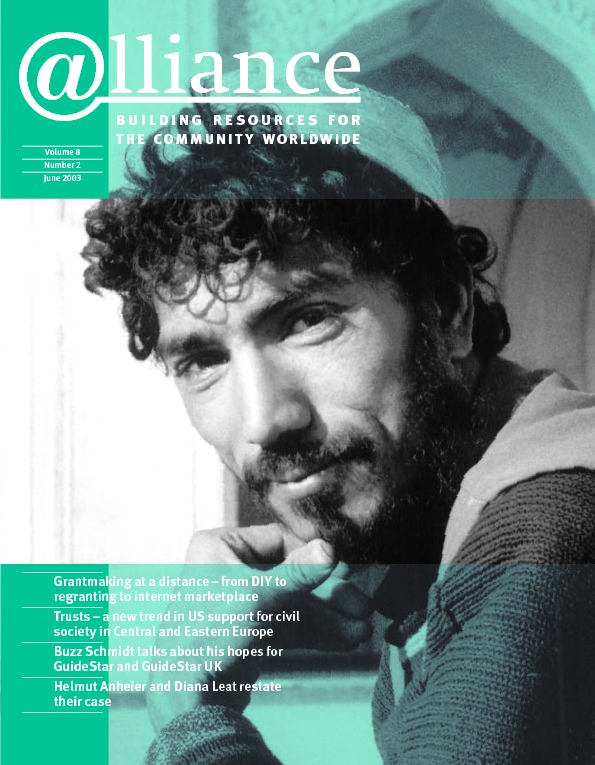Established in 1998 as an independent operational NGO known as the Community Partnership Foundation, since 2000 the Romanian Environmental Partnership Foundation (REPF) has also been a grantmaking organization. As one of Romania’s first domestic grantmakers, from the start REPF linked grantmaking and capacity-building and tried to promote a culture of transparency and accountability through its own grantmaking practices.
During its first two years of operation, the organization pursued its mission, ‘To support the improvement of the environment and the development of communities in Romania by contributing to the formation of a sustainable society that enhances democratic values’, through its only programme at that time, called Dialog.
In 1999, three major American foundations (the German Marshall Fund of the US, the Charles Stewart Mott Foundation and Rockefeller Brothers Fund) decided to expand their Environmental Partnership for Central Europe (EPCE) programme to include Romania. After a year-long feasibility study, REPF was selected to host the EPCE initiative.
Our grantmaking approach
From the start, REPF put special emphasis on capacity-building and technical assistance. A central objective of REPF’s grantmaking activity has always been to make a visible contribution to building a culture of transparency and responsibility in the distribution and use of funds.
We pioneered a new form of grantmaking (new at least in Romania) by making site visits and giving technical assistance before awarding grants – all of which greatly improves the grantee-grantmaker relationship. As a first step, even before designing the strategy for the new grantmaking programmes, REPF staff visited the majority of environmental NGOs in Romania in order to get a complete picture of the needs and challenges they faced. NGOs welcomed this approach: this was the first time a Romanian donor organization had asked for suggestions for developing a grantmaking programme. The site visits also helped us to meet one of the real challenges: to distinguish between real grassroots organizations and those artificially created by government or state-run institutions (the so-called GONGOs), whose sole purpose is to raise funds needed by government that government cannot raise itself.
Being a domestic grantmaker gives us several clear advantages. We have a better understanding of the needs and problems of the sector than a foreign grantmaker could have as a result of being in permanent contact with local NGOs. We can also be more flexible in adjusting our grantmaking activity to the rapidly changing needs of the sector, and faster in responding to burning environmental issues such as major pollution events.[1] It also put us in a good position it to facilitate the processes of building local partnerships between our grantees, other NGOs and local authorities, and to help link Romanian environmental NGOs to international networks as well as to each other.
Being a domestic grantmaker also “forced” us to think from the beginning about our long-term sustainability, realizing that this would influence the sustainability of our grantees as well. For that reason, we started to build our endowment (working reserve) in 2000. Recently the Mott Foundation offered a $200,000 endowment challenge grant to each of the five Environmental Partnership Foundations.
Another advantage of being an indigenous grantmaker became apparent when some of our grantees had trouble implementing their projects owing to the bureaucracy of state-run institutions. Often we felt forced to intervene by calling the institution concerned and explaining how important it is not to keep projects on hold.
What have we achieved?
Since REPF became a donor organization it has achieved considerable development and growth. Its many accomplishments include:
- An increase in the number of programmes developed by REPF from one to six (three grantmaking and three operational).
- A dramatic increase in support from funders in the last three years. Three years ago, REPF relied mainly on core funding provided by three US foundations. At present, a total of eight funders are supporting REPF activities.
- In the last three years, 143 projects have been funded by REPF. The majority of these represent success stories and some were pioneering projects for Romania.
REPF has also attempted to fund long-term initiatives that would have a far-reaching impact on certain environmental and heritage protection issues. We have been extremely proactive and successful in participating in and sometimes leading campaigns for solving environmental problems and protesting against non-sustainable projects (eg the Rosia Montana Gold Mine Project or the Drakula Park Project) that could have a harmful effect upon the natural and built heritage of Romania.
Impact of REDF programmes
The impact of REPF on the Romanian environmental movement and community development processes can be seen in the following figures:
- More than 5,000 individuals participated directly in the projects.
- More than 100 new jobs were created.
- 50,000 trees were planted.
- Over 50 community groups were involved.
- The environmental status of 37 natural reserves and national parks was improved.
1 In 2000, for example, in response to cyanide and heavy metal pollution on the Tisa river, REPF together with the Hungarian Environmental Partnership Foundation initiated a programme for making cooperative grants for Romanian, Hungarian and Yugoslav NGOs working primarily in the fields of environment and transboundary pollution prevention.
Laszlo Potozky is Director of the Romanian Environmental Partnership Foundation.
He can be contacted at epce@topnet.ro
For more information
See http://www.epce.ro





Comments (0)